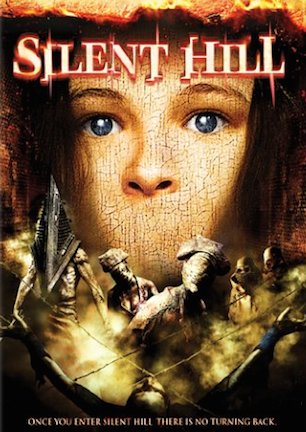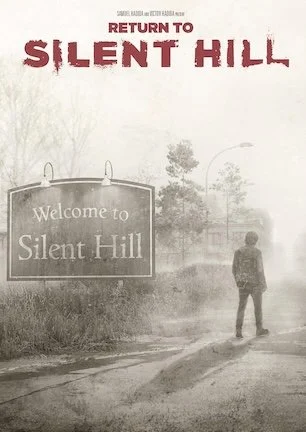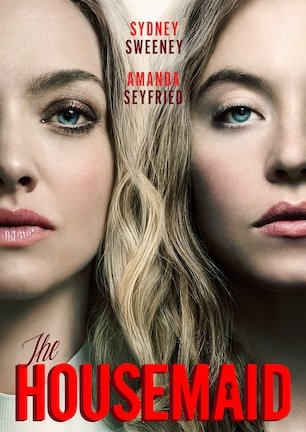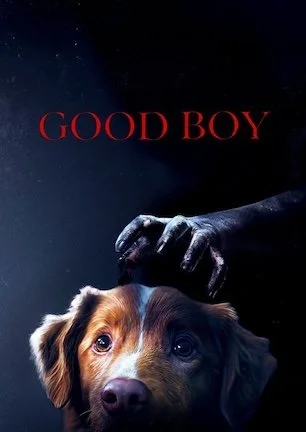Studio: TriStar Pictures
Director: Christophe Gans
Writer: Roger Avary
Producer: Samuel Hadida
Stars: Radha Mitchell, Sean Bean, Laurie Holden, Deborah Kara Unger, Kim Coates, Alice Krige, Jodelle Ferland
Review Score:
Summary:
A mother is trapped between two nightmarish dimensions as she searches for her daughter in the otherworldly town of Silent Hill.
Review:
Movies based on video games are routinely as underwhelming as video games based on movies. “Silent Hill” steps in the right direction until it is finally done in by a muddled climax and the plodding pace it takes to get there. Unlike many video game films, however, director Christophe Gans displays a genuine affection for the source material. It is clear that he understands the psychological level on which Silent Hill has always affected its players. He makes sincere efforts to recreate that mood in the movie while retaining many of the key set pieces from the first game. Yet even with an evident appreciation for the brand, what makes it onto the screen does not translate into something completely functional.
Unsurprisingly, the best aspects of the film are the elements borrowed straight from the game. Gans wisely chose to reuse Akira Yamaoka’s unique orchestrations as the main soundtrack for the movie. Yamaoka’s music is among the most haunting complete scores ever heard in a video game. Those familiar mandolin strains echoed in the opening could play over a montage of children eating ice cream beneath a rainbow and make it the most unsettling image ever seen.
The recreation of Silent Hill as a fog-dense ghost town blanketed with falling ash fills out the tone admirably. It looks like the town from the game. More importantly, it feels like there is something more to be frightened of in that choking haze than just what it will do to your lungs.
It is the changes made to the game world that detract from the overall atmosphere in the film. And this is not because they violate any respect for the original material. Rather, they fail to expound upon it in a meaningful way.
Pyramid Head is likely the most recognizable enemy in the Silent Hill games, acting as a mascot of sorts for the series. And for good reason. Few things are more menacing in the Silent Hill universe than this seven-foot tall beast of a man carrying an impossibly sized bloody sword and wearing an enormous metal pyramid for a mask. It is curious that his filmic counterpart needed to be introduced with a pointless accompaniment of several thousand CGI insect creatures. Pyramid Head is imposing enough on his own that animated insects only distract from the creature’s physical imposition. Silent Hill has a visceral quality that accents its vaguely human-like shapes. Its world resembles a twisted mirrored vision of our own with grime that seeps below its surface. Post-production digital effects do a disservice by adding a layer of smooth fluidity that does not mesh well with the raw appearance of what lies beneath.
When it comes to the characters, there is nothing inherently wrong with changing Silent Hill’s protagonist from the game’s devoted father to the film’s determined and resourceful blonde mother, Rose. Except when pairing her with an equally determined and resourceful blonde woman. The initial conflict between Rose and Cybil, the police officer searching for Rose and missing girl Sharon in Silent Hill, evaporates quickly. From there until the climax, their individual action threads could be swapped without affecting the story.
Rose naturally panics and enters a hysteric state when facing Pyramid Head, until Cybil pulls her to safety while screaming at Rose to help bar the door. After they escape and reality shifts on them, Cybil belts out her frustration with screaming dialogue while Rose is the one now asking her to calm down. Their behavior is mirroring when it should be complementary. Cybil could be lifted out of the story entirely or combined with Rose and little, if anything, would change.
The character of Christopher, the husband and father, has a subplot that plays like a completely separate and unnecessary story since it goes nowhere and has zero bearing on the plot. When his arc is complete, Christopher is in the exact same place he started, with every other character and the town of Silent Hill unaffected by anything he did. It came as no surprise upon discovering afterward that Christopher was reportedly added at the studio’s insistence. It comes across for what it is: a tacked-on afterthought. Fearful that there were too many female leads and no men, that is minus one point for useless studio memos. Cutting these intrusive scenes would have been an enormous boon to the film’s overlong runtime.
At 125 minutes, “Silent Hill” is much longer than it needs to be. Rose spends so much time trudging slowly through the bizarre town that she makes it to the last act without being any closer to finding her daughter or understanding the girl’s connection to Silent Hill. The film then seems to grasp an awareness of the amount of attention paid to mood at the expense of story. Realizing how much catching up there is to do during the home stretch, “Silent Hill” suddenly spits out a heap of expository information. Information that adds up to a partially confusing backstory, and leaves new questions in the wake of those it tries answering.
Around the 90-minute mark, a nearly 10-minute sequence begins that consists mainly of narration, flashbacks, and explanation. Having to devote that much time to exposition, particularly at a point when the film is 75% over, is a failure in visual storytelling. Once the movie starts trying to explain itself, it becomes clear that the motivations behind the grotesqueries and fever dreams is not really standing on solid ground. Almost fitting, in a way, for a town whose unstable roads reside over a still-burning coal fire.
In the battle of style versus substance, “Silent Hill” declares one of them to be the clear victor. The crumbling world delivers a powerful first impression, just not a lasting one. It is an impressive town to travel through for nightmarish imagery and shiver-inducing mood. It is just a shame that the stay lasts longer than it should and the reason for visiting never makes itself clear.
Click here for Culture Crypt’s review of the sequel, "Silent Hill: Revelation."
Review Score: 60






While the 110-minute runtime could use a trim to maintain more energy, “Redux Redux” is an easy recommend for anyone who enjoys low-key sci-fi.